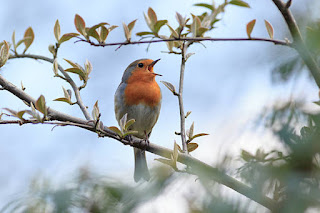I just completed a milestone in
the aging saga. I got hearing aids.
And I’m surprised. For some reason
I didn’t think this would happen to me. In fact, I was proud of the fact that I
didn’t need them. But I was beginning to notice how often I was saying, “What?”
And not just to Hal, who is soft-spoken anyway. But in any conversation of more
than three people. In meetings where people did not want to use a mic.
Especially in the dinning room. It was getting embarrassing.
The whole problem crept up on me
gradually. I finally had to admit I needed help. And now here I am. One of
them.
“What?” is a word we hear a lot
around here. It gets funny. In fact there are a lot of deaf-old-people jokes
out there in the world.
Two friends:
#1: Maybe you should think about getting a hearing test.
#2: Why would I want a hairy chest?
What do you call an old man
who has his hearing aids turned off?
Anything you want.
Sorry. Those are truly
moan-worthy.
I guess there’s a lot to laugh
about. Except when it happens to you and then it’s not so funny anymore. Hal
began to lose his hearing years ago and his attempts to adapt to hearing aids
haven’t worked. He has skin allergies that make the aids painful. It’s hard to
participate in conversations, other than one-on-one. Lectures, sermons,
announcements, even with a mic, are blurred. We only watch movies with
subtitles.
It especially bothers him as a
musician. Hal plays the French horn in the community band. In practices he
can’t hear the conductor’s directions and has to depend on the person sitting
next to him. Fortunately, that person is kind and understanding. And of course,
as the hearing loss progresses—well, you can guess what that does to a
musician.
It’s not only hard on the person.
It’s hard on the other people in his or her life. I’m sympathetic and usually
kind, but there are times I just get downright irritated. Hal gets tired of
asking me to repeat and I get irritated at having to do it. And that’s not fair
to him. I end up feeling guilty. If we’re both tired, we often just give in and
don’t talk at all. (Fortunately, that never lasts long.)
From conversations with others, I know that we’re not alone in facing these challenges. One in every three adults between the ages of 61 and 70 has hearing loss. Above 85, the number rises to 80% (American Academy of Family Physicians). In addition, studies show a relationship between hearing loss and depression. Deafness or partial deafness are also said to play a role in dementia. Hearing aids help reduce the risks of these conditions.
So, here I am. It’s not been a
week yet and I’m still adapting. I’ve still very aware that these things are in
my ears. Fortunately the models these days are discrete and so far no one can
tell I’m wearing them (except when I can’t keep it back and say, “Guess
what?........”). I’m still a bit uneasy. I’m not sure I’m putting them in
correctly or if they’re far enough into the ear. Am I cleaning them well
enough? My follow-up visit is in two weeks. My list of questions is growing.
I have no doubt that I’m hearing
better. Sitting around the table in Sunday school, I could hear the people across from
me without cupping my ear and leaning forward. I can hear my soft-spoken
husband (even if he can’t hear me).
And I can hear a lot more than
that. I never realized what a noisy world we live in. Just in our apartment,
everything is loud—the clock on the wall, paper crinkling, the door closing,
our loud-mouthed refrigerator that hums the same tune over and over. The sound
the toothbrush makes scrapping my teeth.
And me! I can hear myself talking;
it’s like being in an echo chamber, and it doesn’t sound like me. Or what I
thought I sounded like. A little tinnier. In fact, everything seems tinny, like
people are speaking through tin cans connected by wires. I’m told this will
moderate in time, that I’ll learn how to adjust the sounds and volume. I hope
so.
Overall, I’m pleased. I know I’ll grow used to my hearing aids, begin to forget they’re in there, and just hear people talking, birds singing in the distance, the creek bubbling over rocks, and all that other good stuff.
I’ll probably still get angry at jokes about old people saying “What?” all the time. Compassion is called for and understanding.
But you can smile.





.jpg)
.jpg)
.jpg)





